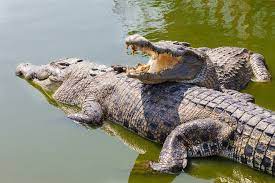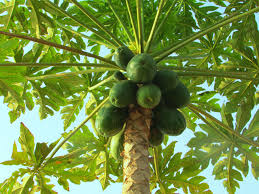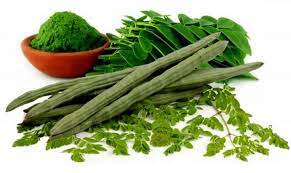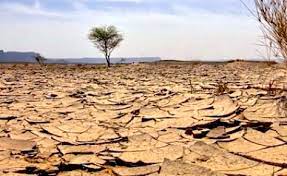
Crocodiles have always played a part in human culture. While being worshipped as holy creatures in some regions, crocodiles were hunted for their meat, skin elsewhere. Apart from food, products were also used for medical, religious or decorative purposes. Crocodile farming's main goal is to harvest the reptiles' skin, flesh, oil, and claws. It is well known that crocodile meat has a high protein content, a pleasant flavour, and low cholesterol.
Crocodile farming is an emerging industry in Nigeria, with great potential for growth and profitability. With its vast wetland areas and favorable climatic conditions, Nigeria provides the ideal environment for the rearing of crocodiles.
Crocodile farming in Nigeria began in the 1970s, when the Nigerian government initiated a project to establish crocodile farms in the country. This project aimed to promote the conservation of the Nile crocodile, which was at the brink of extinction in Nigeria at the time. Since then, crocodile farming has grown significantly in the country, with many farmers setting up their own farms to meet the increasing demand for crocodile products.
Currently, there are over thirty (30) crocodile farms in Nigeria, located in different parts of the country. Most of these farms are small-scale operations, with a few larger farms that produce crocodile meat and skin for export. These farms breed different species of crocodiles, including the Nile crocodile, West African crocodile, and the African dwarf crocodile.
Crocodile farming has become increasingly popular in Nigeria in recent years, due to the high demand for crocodile products in local and international markets. In this article, we will explore how to start crocodile farming in Nigeria, including the necessary steps and requirements for success.
Research and Planning
Before embarking on a crocodile farming venture, it is important to conduct thorough research and planning to ensure that you have a clear understanding of the industry and the requirements for success. This includes researching the market demand for crocodile products, the costs involved in setting up a crocodile farm, and the necessary permits and licenses required to operate a crocodile farm in Nigeria.
You should also research the different species of crocodiles that are suitable for farming in Nigeria, as well as their behavior, diet, and other requirements. This will help you to choose the right species of crocodile for your farm and ensure that you are providing them with the necessary conditions for growth and development.
Secure Land
The next step is to secure suitable land for your crocodile farm. Ideally, you should look for land that has access to a reliable source of water, such as a river or lake, as crocodiles require large bodies of water for swimming and hunting. The land should also be large enough to accommodate the number of crocodiles you plan to rear and should be located in a safe and secure area that is free from human disturbance and predators.
Build Enclosures
Once you have secured suitable land, the next step is to build enclosures for your crocodiles. The enclosures should be spacious enough to allow the crocodiles to move around freely, with separate areas for feeding, basking, and swimming. The enclosures should also be constructed with strong and sturdy materials that are resistant to damage from the crocodiles, as they can be quite aggressive.
Stocking
After building the enclosures, the next step is to stock them with crocodiles. It is important to source your crocodiles from a reputable supplier to ensure that they are healthy and disease-free. You should also ensure that you are complying with all the necessary permits and regulations for importing and stocking crocodiles.
Feeding
Feeding is a critical aspect of crocodile farming, as it directly affects the growth and development of the crocodiles. Crocodiles are carnivores and require a diet that is high in protein and fat. The diet can consist of a variety of sources, including fish, chicken, beef, and other types of meat. It is important to ensure that the crocodiles are fed a balanced diet that meets their nutritional requirements.
Health and Disease Control
Health and disease control is an important aspect of crocodile farming, as crocodiles are susceptible to a range of diseases and infections. It is important to implement a rigorous health and disease control program that includes regular veterinary checks, vaccinations, and appropriate medication when necessary.
Maturity
A crocodile is considered mature when it reaches four to five (4-5) years. At this point, it can produce at least one point two (1.2) meters of underbelly skin which can fetch up to six hundred dollars ($600) in the international market. The same crocodile can weigh approximately three hundred (300) kilograms.
Crocodiles reach sexual maturity when they are about ten (10) years of age. A female crocodile can then lay at least thirty to sixty (30-60) eggs at a time. A farmer can then decide to sell the eggs which are said to taste like chicken eggs, resell to other crocodile farmers or keep them for hatching which takes between eighty to ninety (80 to 90) days to increase the farm numbers.
Processing of skins
The relative value of the skin of different crocodilian species depends on a number of factors. The degree of ossification (bone) in the belly is a key factor that separates the “classic” skins of crocodiles from caimans. The skin of the Saltwater Crocodile is considered the best in the world, as there is no bone in the belly scales, but also because of the high number of belly scale rows in the belly. That the species grows large is also a positive characteristic.
Following removal of the skin at the time of culling, it is cured with salt - this prevents the skin from rotting. At the tannery, the first step to converting the skin into leather is soaking, to restore the skin to its former state. Then the keratinous scales are removed, and a series of chemical processes are undertaken to convert the skin to leather, which can be dyed and made ready for manufacture into products.
These processes may vary according to species. Although there are tanneries dealing with crocodile skins throughout the world, considerable expertise with the highest quality crocodilian leather products is in Singapore, Japan and Europe.
International trade and Marketing
Marketing is an essential aspect of any business, and crocodile farming is no exception. The current international trade involves over one million, five hundred thousand (1,500,000) crocodilian skins per year, exported legally from about thirty (30) countries.
It is important to identify your target market and develop a marketing strategy that effectively communicates the benefits of your crocodile products. This can include developing relationships with local and international buyers, attending trade shows and exhibitions, and developing a strong online presence.
Challenges Facing Crocodile Farmers in Nigeria
Despite the potential benefits of crocodile farming, farmers in Nigeria face several challenges that make the industry difficult to operate in. One significant challenge is the high cost of setting up a crocodile farm. Crocodile farming requires substantial capital investment in terms of land, equipment, and feed. Farmers also need to pay for permits and licenses to operate a crocodile farm. This high cost of entry makes it difficult for many aspiring farmers to enter the industry.
Another challenge facing crocodile farmers is the lack of technical expertise and support. There is a limited pool of qualified experts in the country who can offer guidance and support to farmers in setting up and managing crocodile farms. As a result, many farmers have to rely on trial and error, which can be costly and time-consuming.
Additionally, crocodile farming in Nigeria is not without risks. Crocodiles are dangerous animals that can be difficult to manage, particularly during breeding season. Farmers need to take adequate precautions to ensure the safety of their staff and animals. There is also a risk of disease outbreaks among crocodiles, which can be devastating to a farm's productivity and profitability.
Benefits of Crocodile Farming in Nigeria
Despite the challenges, crocodile farming offers several benefits to farmers and the country as a whole. One significant benefit is the potential for job creation. Crocodile farming has the potential to create employment opportunities for local communities, particularly in rural areas where jobs are scarce. The industry requires a range of skills, from animal care and management to marketing and sales, providing a diverse range of employment opportunities.
Another benefit of crocodile farming is the potential for income generation. Crocodile meat and skin are highly valued products in Nigeria and international markets. Crocodile meat is considered a delicacy and can fetch high prices in local markets, while crocodile skin is used to produce luxury leather goods such as bags, shoes, and wallets. By selling these products, farmers can generate substantial profits and contribute to the country's economy.
Crocodile farming also offers an opportunity for conservation. Crocodiles are endangered animals that are at risk of extinction due to habitat loss and poaching. By establishing crocodile farms, farmers can help to conserve these animals by providing a safe and controlled environment for breeding and rearing. This approach can also help to reduce the pressure on wild populations, as farmers can produce crocodile products without depleting wild populations.
Conclusion
Crocodile farming has the potential to be a profitable venture in Nigeria, with the demand for crocodile products increasing both locally and internationally. However, it is important to conduct thorough research and planning, secure suitable land, build suitable enclosures, stock with healthy crocodiles.
The international market for crocodile skins is estimated to be worth more than one hundred million dollars ($100,000,000). This is because crocodile skin is considered one of the world’s finest leathers and features in collections by some of the world’s most elite luxury brands in the fashion industry. The pattern of crocodile leather makes a product unique such that, no pattern is identical to another.
Crocodile farming is a very profitable business and would generate a lot of income for the investors and create employment for our teaming youths.























